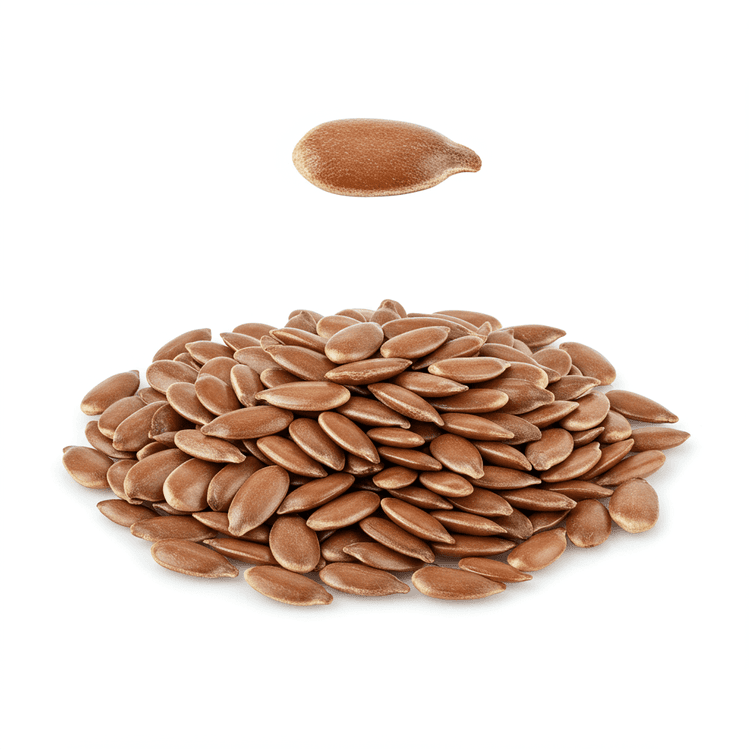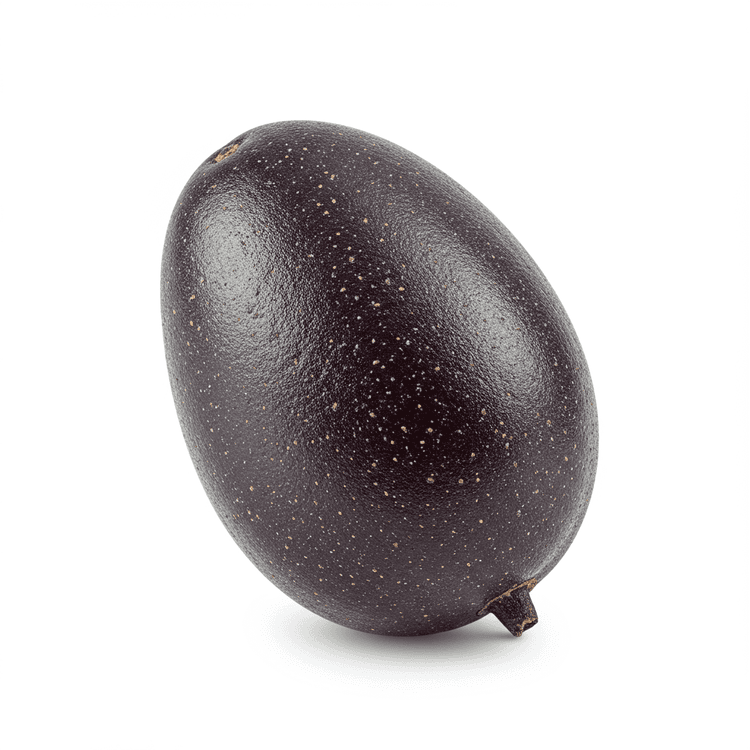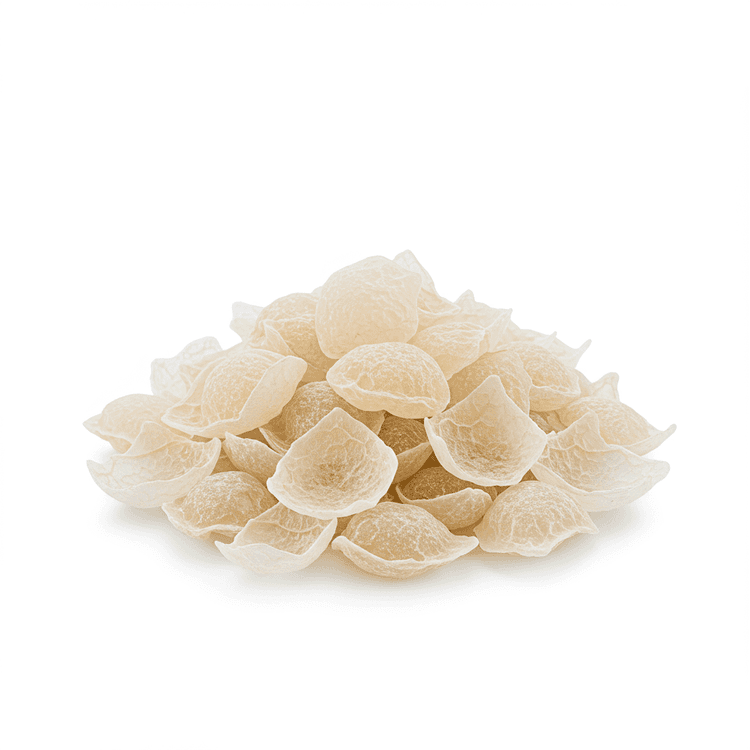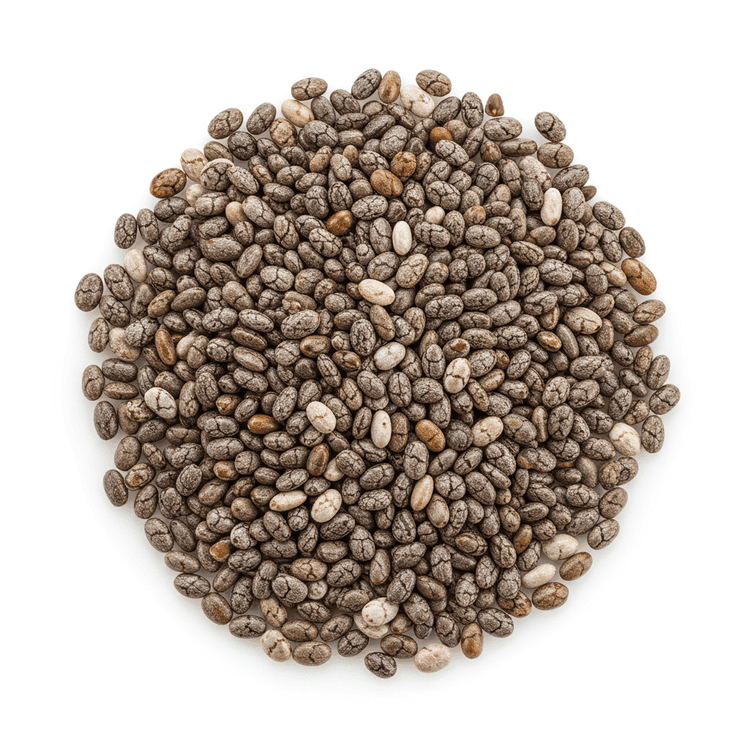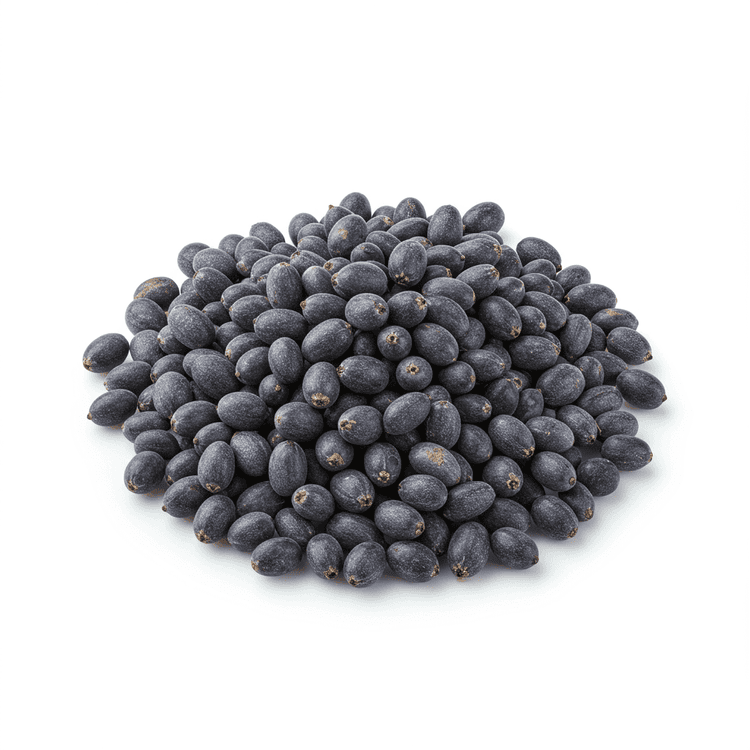
Basil Seeds
Basil seeds, also known as sabja seeds or tukmaria seeds, are tiny, tear-shaped black seeds that come from the sweet basil plant (Ocimum basilicum). When soaked in water, basil seeds swell and develop a gelatinous coating, expanding to many times their original size. This creates a unique texture, often described as slightly crunchy and jelly-like. While they have a mild, subtle flavor on their own, basil seeds readily absorb the flavors of liquids they are soaked in, making them a versatile ingredient for adding texture and nutritional benefits to drinks and desserts. Find basil seeds in Asian grocery stores, Indian grocery stores and natural food stores.
Common Uses
- Basil seeds are frequently used to make refreshing summer drinks like falooda and sherbet. Soaking the seeds in water allows them to swell and create a cooling, hydrating beverage that can be flavored with rose syrup, milk, and other ingredients. - They are also a popular addition to smoothies, providing a boost of fiber, vitamins, and minerals. The slightly crunchy texture of the seeds adds an interesting element to the smoothie's consistency. - Basil seeds can be incorporated into desserts such as puddings, parfaits, and kheer (rice pudding). The gelatinous coating of the seeds helps to thicken the dessert and adds a unique textural component. - Adding basil seeds to your plain yogurt or overnight oats is a great way to increase the fiber content of your breakfast. The seeds will absorb some of the liquid, making the yogurt or oats creamier and more filling. - Basil seeds can be used as an egg substitute in vegan baking. When mixed with water, they form a gel that binds ingredients together, similar to an egg. This makes them a useful ingredient for creating vegan cakes, cookies, and other baked goods.
Health Benefits
- Rich in fiber, promoting digestive health and regularity.
- May aid in weight management by promoting a feeling of fullness.
- Good source of antioxidants, which help protect against cell damage.
- Contains minerals like iron, potassium, and calcium, contributing to overall health.
- May have cooling properties, traditionally used to help regulate body temperature.
- Supports bone health due to its calcium content.
Substitutes
Chefadora AI is here.
Experience smarter, stress-free cooking.
Storage Tips
Basil seeds should be stored in an airtight container in a cool, dry, and dark place. This helps to prevent them from absorbing moisture and becoming clumpy or moldy. Stored properly, basil seeds can last for several months. Avoid storing them in the refrigerator, as the humidity can cause them to spoil.
Marnirni-apinthi Building, Lot Fourteen,
North Terrace, Adelaide, South Australia, 5000
Australia
